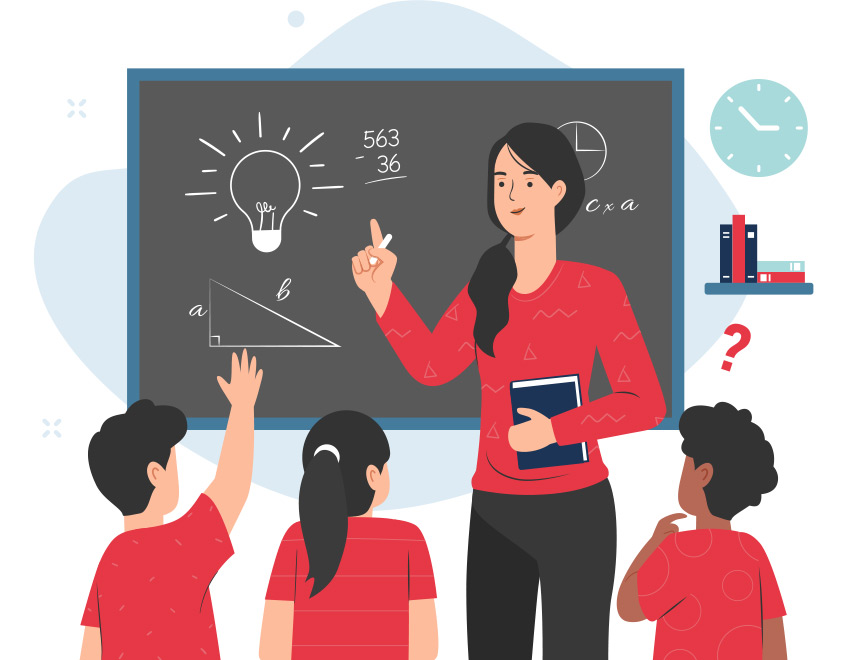Achieve Academic Success with Primary Science Tuition Singapore
Achieve Academic Success with Primary Science Tuition Singapore
Blog Article
Checking Out the Different Training Strategies in Main Science Education Today
Inquiry-based understanding, hands-on experiments, and the combination of technology are redefining exactly how teachers engage young minds. In addition, collective approaches and distinguished guideline are being utilized to provide to the diverse needs of pupils, enhancing both involvement and understanding.
Inquiry-Based Learning
Inquiry-Based Discovering (IBL) is an instructional technique that urges pupils to explore clinical concepts via doubting, examination, and hands-on testing. This method highlights the duty of students as active participants in their learning, promoting essential thinking and analytic skills. By involving with real-world questions, trainees become interested and determined, which improves their understanding of clinical concepts.
In IBL, teachers act as facilitators, leading students as they navigate their inquiries instead of supplying information directly. This student-centered method enables distinction, suiting numerous finding out paces and designs. Trainees create abilities in developing hypotheses, creating experiments, and analyzing information, which are crucial for scientific proficiency.
Additionally, IBL promotes collaboration amongst trainees, urging them to share searchings for and ideas. This collective inquiry advertises social abilities and a sense of community within the class. The process of questions urges resilience, as trainees discover to accept failing as a stepping stone towards understanding.
Hands-On Experiments
Hands-on experiments are an important part of efficient scientific research education, enhancing the principles of inquiry-based understanding. These experiments permit pupils to involve directly with clinical principles, fostering a deeper understanding via experiential understanding. By adjusting products and observing outcomes, young students can grasp abstract theories in tangible methods.
Such tasks advertise critical thinking and analytical abilities, as pupils hypothesize results, conduct experiments, and examine outcomes. This procedure encourages them to ask inquiries, fine-tune their understanding, and develop a scientific attitude. Hands-on experiments can be tailored to diverse knowing styles, ensuring that all trainees have the chance to engage meaningfully with the content.
Additionally, hands-on experiments often motivate collaboration amongst peers, promoting teamwork and communication skills. Functioning in groups makes it possible for pupils to share concepts, discuss findings, and learn from each other, which enhances their total academic experience.
Incorporating hands-on experiments into the primary science educational program not only improves the finding out setting but likewise grows a long-lasting rate of interest in scientific research. By actively taking part in their education and learning, pupils are more probable to develop an enthusiasm for scientific questions that prolongs past the classroom.

Modern Technology Integration
Incorporating technology right into primary science education and learning has actually come to be increasingly necessary in fostering pupil engagement and enhancing learning results. Using digital tools, such as interactive simulations, online labs, and academic software application, offers pupils with possibilities to discover clinical principles in innovative means. These sources assist in a much deeper understanding of complicated topics by allowing learners to envision and manipulate variables that would be unwise in a typical classroom setting.
Additionally, technology integration encourages personalized discovering experiences. Students can progress at their very own speed, reviewing difficult ideas with multimedia sources, which accommodate different understanding designs. This flexibility not just sustains individual growth however additionally cultivates a sense of autonomy in students.
Additionally, innovation acts as a bridge to real-world scientific research, connecting trainees with existing study and expert payments. Access to on the internet data sources and scientific journals broadens students' point of views on scientific query and cultivates crucial believing abilities.
Collaborative Understanding
Collective discovering plays an important duty in key scientific research education and learning Our site by promoting synergy and interaction abilities among trainees. This strategy urges learners to interact, share understanding, and take part in analytic, which improves their understanding of scientific principles. By taking part in team activities, trainees learn to express their ideas, listen to diverse perspectives, and discuss remedies, all of which are important skills in both real-world and scholastic contexts.

Research study shows that collective knowing can bring about enhanced motivation and interaction in science subjects, as students discover pleasure in common experiences (primary science tuition Singapore). Additionally, this technique prepares trainees for future collective undertakings, outfitting them with the abilities required for efficient synergy in higher education and learning and expert atmospheres. Ultimately, embracing collective knowing in primary science education can significantly enhance the discovering experience and advertise a deeper understanding of clinical query
Separated Instruction

Differentiated direction can materialize in various methods, such as differing the content, procedures, or items of knowing. Educators might use tiered projects that provide varying levels of complexity, allowing students to work at their corresponding preparedness degrees. Additionally, adaptable organizing techniques can promote collaboration among pupils with various capabilities, cultivating peer learning.
Evaluation plays an important role in this technique, as it educates instruction and helps right here teachers recognize each student's special requirements. Formative analyses, such as monitorings and tests, can assist educators in readjusting their strategies to boost finding out outcomes. primary science tuition Singapore. Eventually, by implementing distinguished instruction in key scientific research education and learning, teachers can grow an extra reliable and fair discovering atmosphere, empowering all pupils to reach their full possibility in recognizing scientific sensations
Final Thought
In summary, the diverse mentor strategies in main scientific research education, including inquiry-based understanding, hands-on experiments, technology integration, joint knowing, and set apart instruction, collectively contribute to a much more effective understanding setting. These approaches advertise crucial thinking, analytic skills, and a deeper comprehension of scientific principles. By executing these methods, instructors can develop helpful and engaging class that attend to the different needs of pupils, ultimately cultivating a lifelong interest in science and enhancing academic accomplishment.
Inquiry-Based Learning (IBL) is a pedagogical approach that urges trainees to explore clinical concepts via questioning, investigation, and hands-on experimentation.Collective understanding plays an important duty in main science education the original source and learning by fostering team effort and interaction skills amongst pupils.Study indicates that joint understanding can lead to increased inspiration and involvement in science subjects, as pupils discover satisfaction in common experiences.In cultivating an inclusive knowing setting, differentiated direction arises as a vital method to fit the diverse demands and abilities of trainees in main scientific research education. Eventually, by executing differentiated instruction in key scientific research education and learning, educators can cultivate an extra fair and reliable understanding atmosphere, equipping all pupils to reach their full possibility in understanding scientific phenomena.
Report this page